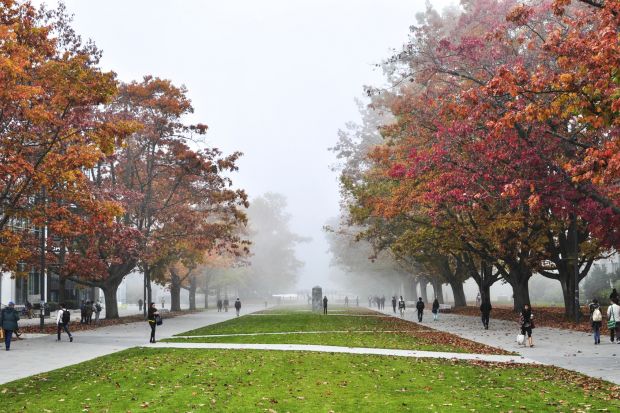The University of British Columbia (UBC) is promising a top-to-bottom overhaul in pursuit of indigenous rights and reconciliation, aiming to become the world leader in academic rejection of colonial influences.
UBC, one of the world’s top research institutions, anticipates the changes will deeply restructure how its campuses look, what its faculty teach and how its scientists explore the world.
“We are on the cutting edge of this global conversation, this global responsibility,” UBC’s president, Santa Ono, said in outlining his ambition to an audience of indigenous leaders.
Such pledges have grown familiar in the five years since Canada’s Truth and Reconciliation Commission issued a broad set of recommendations to reverse the country’s historical mistreatment and persecution of its indigenous people.
Many Canadian universities have already taken steps to find and retain indigenous students and faculty, create on-campus spaces for indigenous culture and revise or create courses to emphasise indigenous history, language and structural mistreatment.
But UBC, with 66,000 students at its Vancouver and Okanagan campuses, and more than C$650 million (£380 million) in annual research expenditures, appears determined to go beyond all that.
Other Canadian universities, said Sheryl Lightfoot, Dr Ono’s senior adviser on indigenous affairs, are engaged in “old era” inclusion.
That means “adding programmes, adding students, adding faculty − but not committing to making fundamental changes within what is essentially a colonial institution,” said Dr Lightfoot, who is of Anishinaabe descent.
With such modest scope to date in Canada, the collective promises of academic indigenisation appear to be attracting as much scepticism as excitement. Descendants of people native to Canadian territory prior to European arrivals often doubt the depth of university commitments. Many academics welcome restorative measures but fight signs of political interference in research and curriculum.
UBC is encountering both sets of anxieties. In its world-class research programmes, Dr Lightfoot foresees UBC imposing tougher rules on scientists who study indigenous people and sites, and he expects UBC scientists to begin co-developing their projects with indigenous partners.
But details are unclear, especially in hard sciences such as mathematics or physics where the underlying work has little or no race-specific variation. “It all depends,” Dr Lightfoot said. “Not every aspect of the university is going to be affected by this.”
Even overhauling social sciences and classroom teaching, with more obvious potential for political redirection, may be limited to those who express interest. “If you read the plan, you don’t see anything that’s mandatory in it,” Dr Lightfoot said. “It’s a cultural shift − it’s an encouragement to start thinking differently and to start approaching our university operations and practices in a different way.”
Outlining UBC’s future, Dr Ono also emphasised the size of the challenge rather than any specific ways of meeting it. “There is no one, anywhere in the world, that has yet done this in a university setting,” he said of global promises to uphold indigenous rights. “There is no template, no guidebook, anywhere.”
That has left indigenous leaders hoping for clearer answers. Steven Lewis Point, a former chief of the Skowkale First Nation and former lieutenant governor of British Columbia, recently accepted appointment as UBC chancellor. Yet he told the UBC event that he did so despite some misgivings.
Wayne Sparrow, chief of the Musqueam Indian Band, offered a similar take, admitting his frustration about “how slow we’re moving” in Canada on indigenous concerns.
Both leaders said they place trust in UBC largely because of their personal confidence in Dr Ono and his commitment to find a path forward.
UBC and Dr Ono, however, face heavy pressure in the other direction. Rodney Clifton, professor emeritus of sociology at the University of Manitoba who studies the indigenisation of Canadian universities, said that the institutions clearly can do a better job of helping Canada’s long-abused native peoples and cultures.
But many universities are risking going too far in the name of political objectives, destroying their institutional commitment to free inquiry, said Professor Clifton, whose wife of 52 years is of Blackfoot heritage.
“I am very sympathetic to indigenous people and I want them to take their place in Canada like all other people,” he said. “But we need to have policies debated and discussed, especially at universities.”
Publicly, for now, UBC appears far more concerned with assuring those backing an indigenisation agenda. “What will be key” in doing that, Dr Lightfoot said, “is moving quickly on our implementation plan”.
Register to continue
Why register?
- Registration is free and only takes a moment
- Once registered, you can read 3 articles a month
- Sign up for our newsletter
Subscribe
Or subscribe for unlimited access to:
- Unlimited access to news, views, insights & reviews
- Digital editions
- Digital access to THE’s university and college rankings analysis
Already registered or a current subscriber? Login







